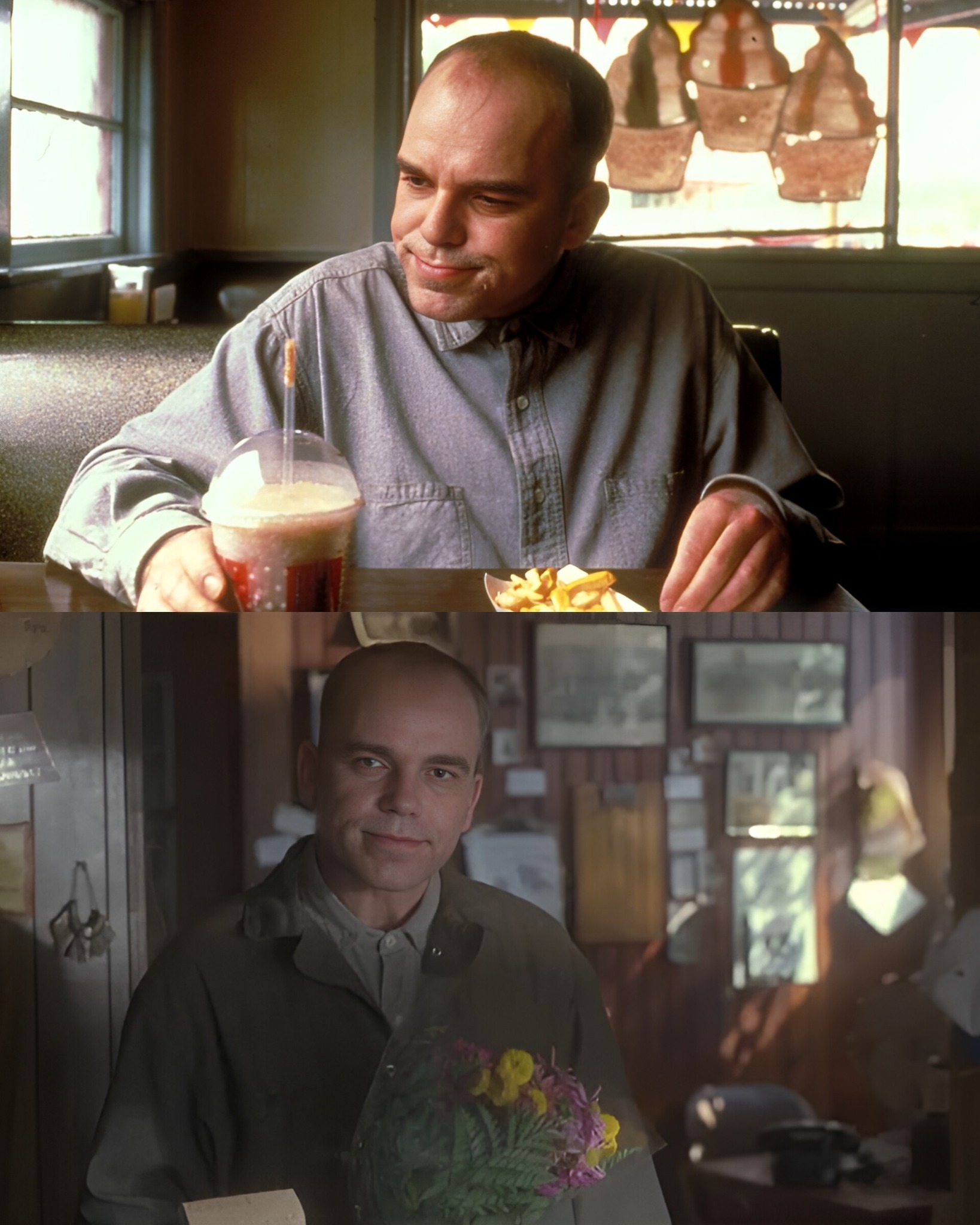written and directed by Billy Bob Thornton, is a haunting, poignant Southern Gothic drama about trauma, redemption, and the fragile line between good and evil. Thornton stars as Karl Childers, a mentally challenged man who has spent most of his life in a psychiatric hospital after killing his mother and her lover during childhood.
When the story begins, Karl is being released from the institution, deemed no longer a threat. With nowhere to go, he returns to his Arkansas hometown and takes up work at a small engine repair shop. He soon befriends a kind-hearted boy named Frank Wheatley, who is grieving the death of his father. Frank lives with his mother Linda, a struggling, warm woman entangled in an abusive relationship with Doyle, her violent, alcoholic boyfriend.

Karl finds a sense of purpose and emotional connection with Frank and Linda. He becomes a surrogate father figure to the boy and experiences a type of familial intimacy he’s never known. However, Doyle’s escalating cruelty threatens the family’s safety, pushing Karl toward a painful moral crossroads.
With deliberate pacing, sparse dialogue, and deep emotional undercurrents, Sling Blade explores themes of moral justice, the lasting wounds of childhood abuse, and the quiet dignity of the marginalized. Thornton’s performance as Karl—stooped, soft-spoken, and filled with sorrow—is mesmerizing and unforgettable. The film also features strong supporting performances by Lucas Black (Frank), Natalie Canerday (Linda), Dwight Yoakam (Doyle), and John Ritter as Linda’s empathetic gay friend.
The film builds to a stark, inevitable conclusion, where Karl takes decisive action to protect the boy he’s come to love. His choice raises uncomfortable questions about justice, violence, and sacrifice. Sling Blade is a powerful meditation on human decency in the face of cruelty, marked by its somber tone, nuanced character study, and emotional weight.

